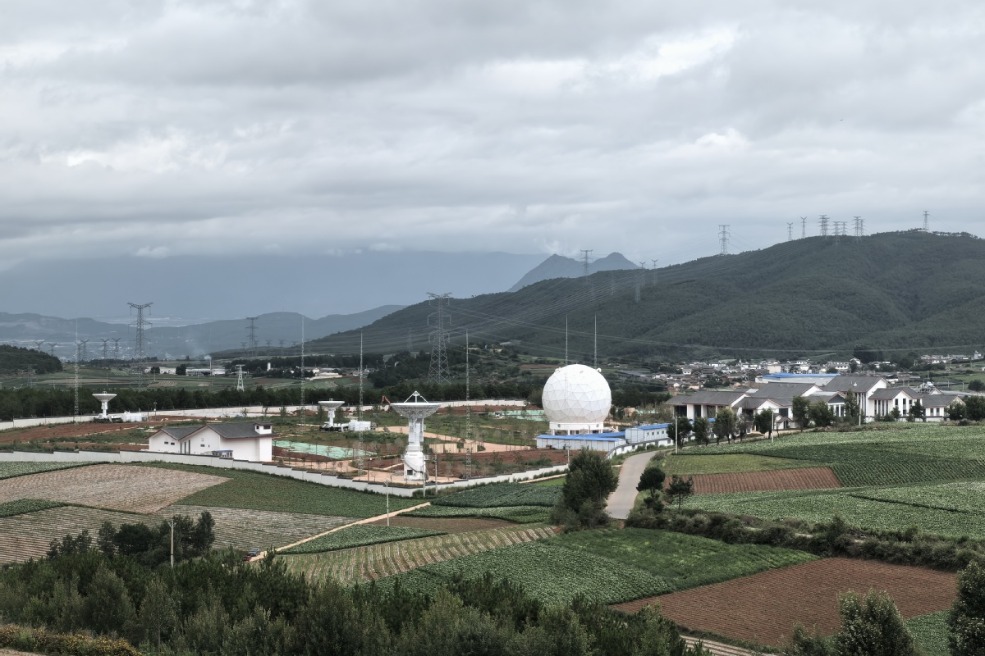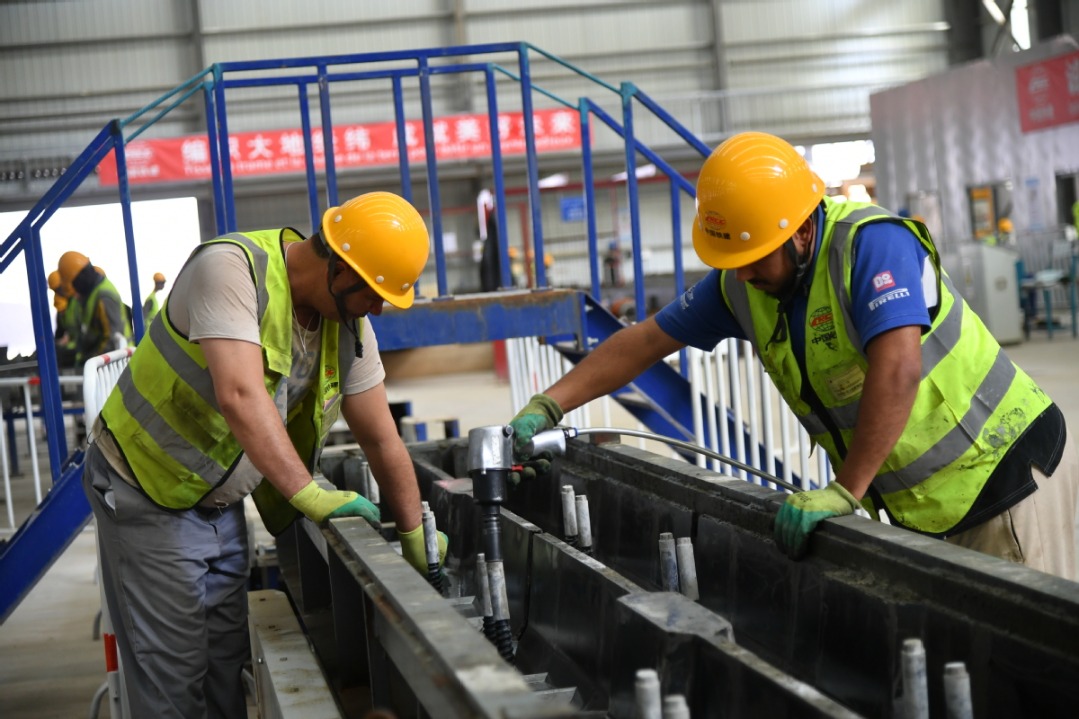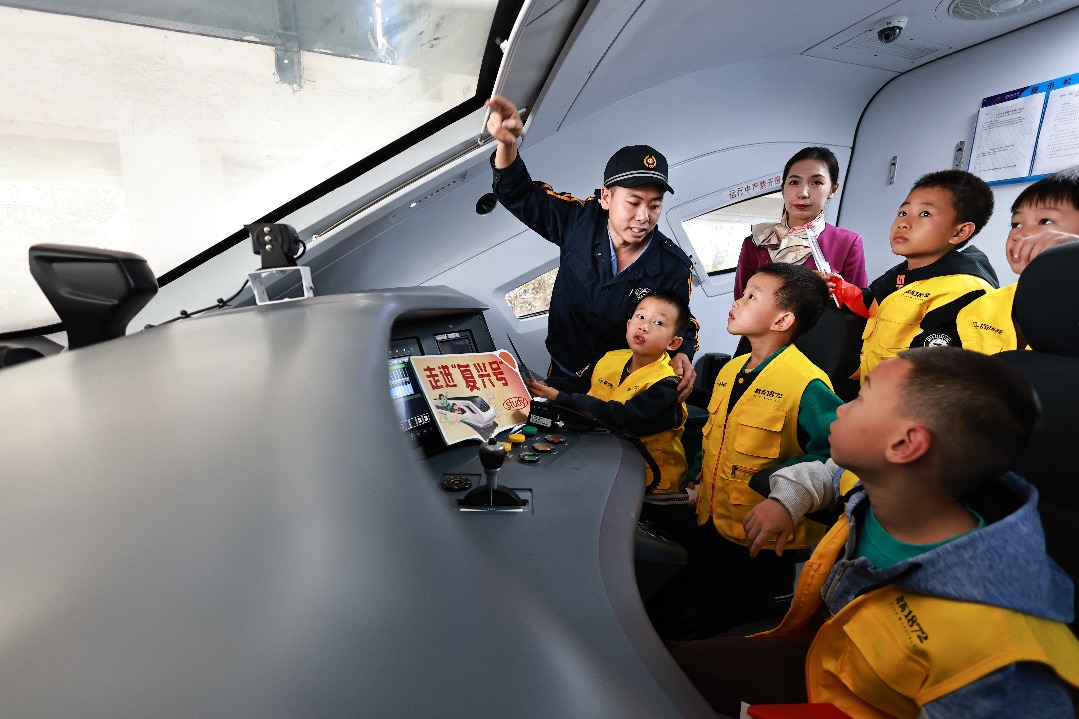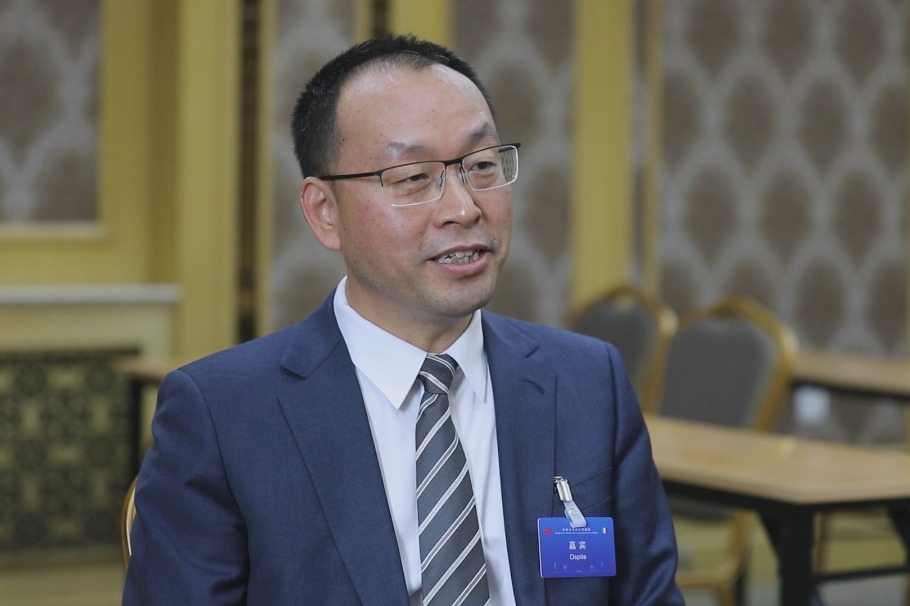National Astronomical Observatories takes charge of lunar rocks, soil


National Astronomical Observatories, a subsidiary of Chinese Academy of Sciences, has officially taken charge of the lunar rocks and soil brought back by China's Chang'e 5 robotic probe and will start research soon.
A ceremony for receiving the lunar samples was held at the National Astronomical Observatories on Saturday morning shortly after the samples were handed over by Zhang Kejian, head of the China National Space Administration, to Hou Jianguo, CAS president.
At the ceremony, Hou formally handed over the samples to Chang Jin, head of the National Astronomical Observatories, and also issued Chang a duty certificate.

The samples have now entered China's first Lunar Sample Laboratory in Beijing, where they will be unsealed and processed for further analytical research. The observatories said the research will help deepen mankind's knowledge of the moon and the evolutionary history of the solar system.
Chang Jin said these lunar samples contain significant scientific meanings because the site where Chang'e 5 scooped the soil, an area near Mons Ruemker on the western edge of the moon's near side, had never been visited before Chang'e 5 and the technologies used were new.
"We will organize teams of scientists to work carefully, not to waste a single sample materially and to explore the infinite scientific value hidden behind each sample scientifically," he said.
Hou said the Chang'e 5 lunar probe's success in bringing back the lunar samples marks Chin's achievement in the return of extraterrestrial celestial body samples. It also is 44 years since the last time humans brought lunar samples back to Earth, making China the third country in the world to retrieve samples from the moon.

The handover to CAS is both a noble honor and a great responsibility, Hou said, adding that all relevant departments at the academy will promote cooperation and strengthen collaborative research, conserve and use well the lunar samples, and aim to produce significant scientific results.
Scientists also will work to popularize science and stimulate innovation and creativity in society and vigorously carry forward the spirit of lunar exploration, he added.
CAS is one of the initiators, organizers and practitioners of China's lunar exploration project and has participated in missions from Chang'e 1 to Chang'e 5, and is responsible for developing many key supporting technologies, such as a ground application system and payload sub-system.
- Chinese premier stresses strengthening agricultural production, disaster prevention
- Public holiday extension announced
- 'Crab King' and 'Crab Queen' crowned at Shanghai competition
- UN asks developed world to help developing countries in climate fight
- Former Guangdong legislator sentenced
- Expert: China wants to make global governance democratic, just and reasonable





































